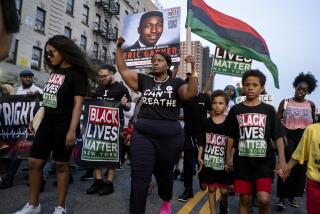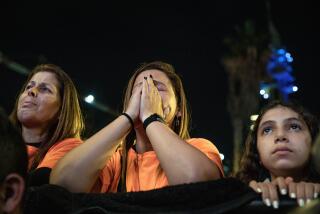Northern Irish, Vietnam Veterans Share Bond: Post-Trauma Stress
BELFAST, Northern Ireland — Like U.S. soldiers returning from Vietnam, the victims who survive Northern Ireland’s bloody conflict have been left with a devastating range of mental scars that could take a lifetime to heal.
Belfast doctors researching 500 victims of one of the world’s longest-running guerrilla conflicts found that 1 in 4 were suffering from post-traumatic stress (PTS) disorders that ranged from nightmares to broken marriages and alcoholism.
Their findings show just how deep the mental wounds can be in Northern Ireland, where almost 3,000 people have died and 30,000 have been injured in the battle by Irish nationalist guerrillas to oust Britain from the province.
Dr. Gerry Loughrey and his psychiatrist colleagues at Belfast’s Mater Hospital charted the mental health of people who had been subjected to a whole string of atrocities in the 20-year-long troubles.
‘Kneecapping’ Victims
They interviewed “kneecapping” victims, who had been shot in the kneecap as punishment. They also talked with people had survived assassination attempts and others had been taken hostage or watched a loved one being gunned down.
The psychiatrists revealed just how broad the symptoms of their post-traumatic stress could be. Victims were startled by loud noises, unable to concentrate, faced constant insomnia and suffered deep depression.
Marriages crumbled as the victims became almost isolated from reality, facing what the doctors called “psychic numbing” or “emotional anesthesia.”
“The problem is that people don’t seek treatment,” Loughrey said. “The first line of treatment is just getting the victims to express their feelings and let it all out.”
Talk, Not Tranquilizers
Talking it through, not tranquilizers, is the best solution, said Loughrey, who traced the history of post-traumatic stress in a recent issue of a medical journal.
The illness was first diagnosed in 1980 by doctors studying the psychiatric problems of Vietnam vets. But experts acknowledge that the problem dates back to the shell-shock victims of World War I.
Ironically, Loughrey said, civil disorder can have a beneficial effect on the mentally unstable.
Northern Ireland’s suicide rate dropped during the first year after civil conflict erupted. In Lebanon referrals to psychiatric hospitals fell during the 1975-1976 phase of the civil war.
Baltimore Riots
“In Baltimore’s experience of four days’ rioting in 1968 following the assassination of Martin Luther King, there was a sharp drop in (psychiatric hospital) admissions with no rebound effect afterwards,” he said.
Why do people show signs of psychological well-being during civil violence? Loughrey suggested that it tends to bind communities more closely together while it may also have a cathartic effect in actually reducing depression.
Studies have also shown that Northern Ireland children, often portrayed in news photos stoning British soldiers in their armored cars, have proved very resilient in coping with the stresses of permanent violence on their doorsteps.
More to Read
Sign up for Essential California
The most important California stories and recommendations in your inbox every morning.
You may occasionally receive promotional content from the Los Angeles Times.










